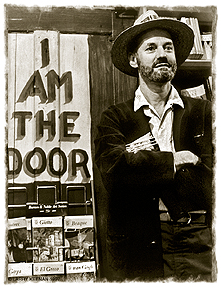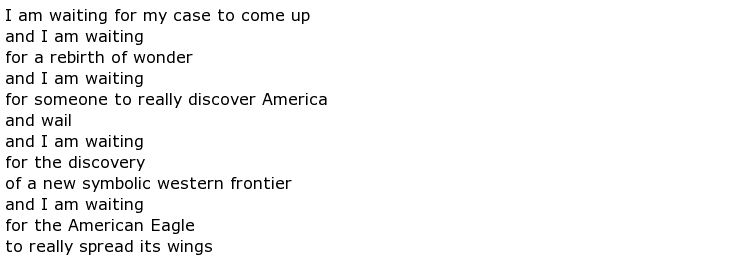 Born in New York in 1919, Lawrence Ferlinghetti’s life didn’t get off to the best of starts. His father tragically passed away 6 months before his birth and his mother found herself detained in an asylum shortly after he was born. He was brought up by his Aunty Emily, who became his ward and brought him to Strasbourg for the first five years of his life.
Born in New York in 1919, Lawrence Ferlinghetti’s life didn’t get off to the best of starts. His father tragically passed away 6 months before his birth and his mother found herself detained in an asylum shortly after he was born. He was brought up by his Aunty Emily, who became his ward and brought him to Strasbourg for the first five years of his life.
They later returned to the States and Ferlinghetti was forced to stay in an orphanage during the time his aunt looked for work. He was left in the care of the Bisland family after his aunt was hired as a French governess and attended a number of schools in the Bronx before heading to the University of North Carolina where he studied journalism, graduating in 1941.
He found an affinity with the sea when he worked with friends, lobster fishing in Maine, and it would later prove a profound influence on his poetry. When America entered the Second World War at the end of 1941, Ferlinghetti immediately enlisted as a merchant seaman.
After a brief spell working on the Ambrose Lightship in New York, he became a commander of a sub chaser and was at Normandy at the time of the invasion. After the end of the war in Europe, he headed to the Pacific and visited the site of Nagasaki just a few weeks after the bomb was dropped on the city. It was an experience that would confirm him as a pacifist from that point on.
With the war over, Ferlinghetti went back the States and used the GI Bill to go back to university and study literature. Having finished his course at Columbia University, he went to Paris for 4 years to further his studies at the Sorbonne, where he met his future wife Selden.
On returning to America, they settled in San Francisco. It was a productive time as he taught adult education, painted a lot, and founded the famous City Light Bookstore. Its publishing side was used for his first book of poetry, Pictures of the Gone World, but it also became a shining beacon for the Beat Generation.

In 1956, he was arrested under the obscenity law for publishing Ginsberg’s Howl. The trial drew much attention and unmitigated support from the literary fraternity of America and Ferlinghetti was finally acquitted in 1957.
Whilst the poets of the Beat Generation garnered much of the attention at the time, Ferlinghetti’s own poetry was based firmly in the lyric, narrative traditions of the past. His theme was often the common man and the broken promise of democracy and how the individual thrives as part of the masses. Poems such as Two Scavengers in a Truck are often studied in schools to this day and he has received numerous awards both in America and in Italy and France.
A self-professed anarchist, Ferlinghetti has never shied away from making his political beliefs known and using avenues such as poetry to express them. He has been credited with helping to bring poetry out of the academic arena and back to the public. Perhaps his most well-known work is Just as I Used to Say which was published in 1976.


